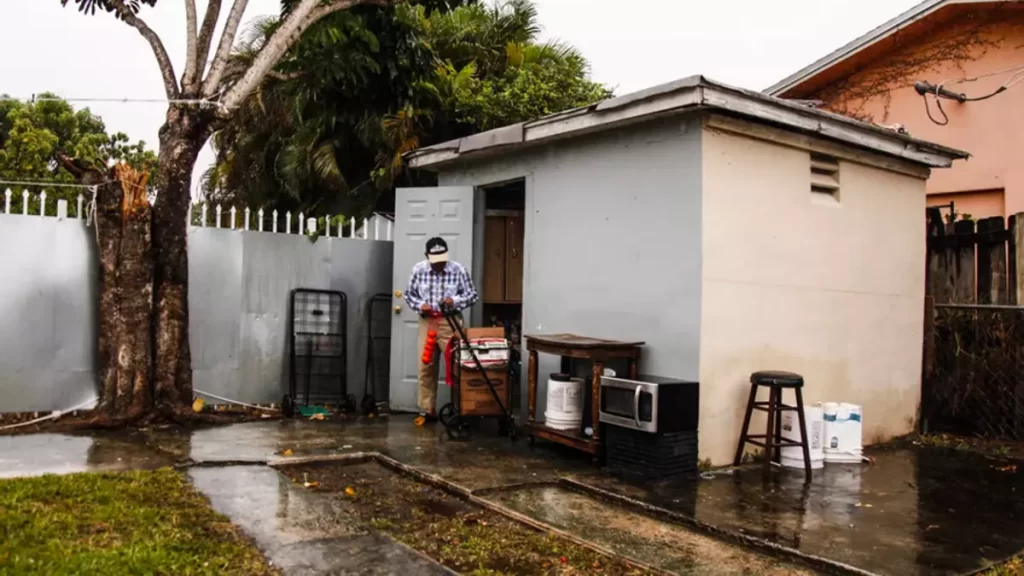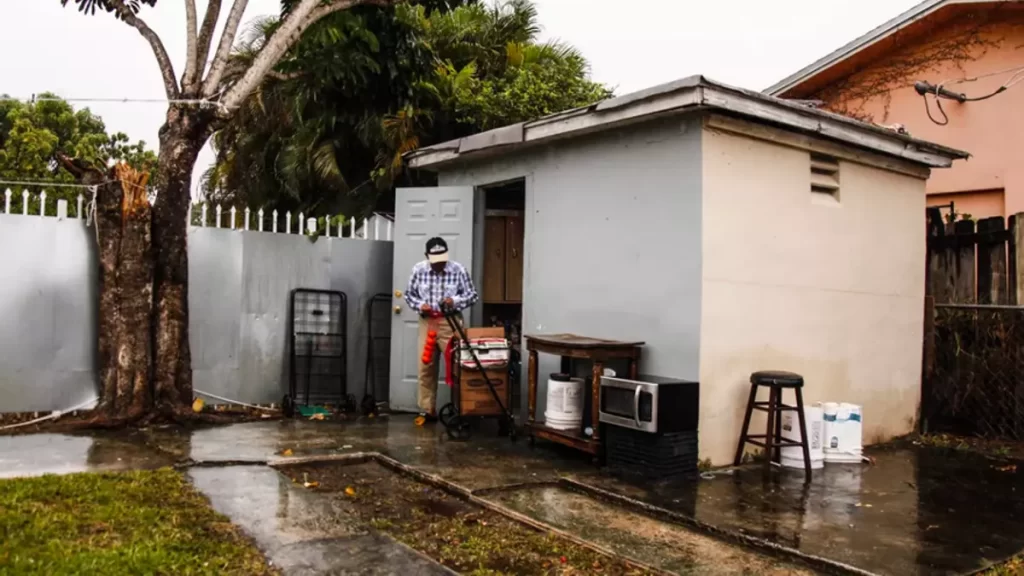
14ymedio, Alejandro Mena/Juan Izquierdo, Miami/Havana, 30 March 2024 — “How much do you pay for rent?” The question has become a greeting among the Cubans of Miami, and the answer is almost always a stratospheric figure. The real estate issue hits newcomers and long-timers alike, but the possible solutions – moving to smaller spaces or peripheral cities – bring new complications: in the historic capital of exile you can have family and your culture, but you also have to work.
Iván, a 38-year-old man from Havana, knows this full well and lists his litany of bills to 14ymedio. Discounting electricity and other basic services, health insurance and his car, living in Broward County – north of Miami-Dade and once economical – costs him more than $2,400.
An apartment, like Ivan’s, has a room, a small kitchen, a washing machine and some furniture. To pay for it, he has to divide his day between two jobs – as a taxi driver and kitchen assistant – and still doesn’t have enough to pay the bills. He wants to move, but it’s not easy. “What’s the most shocking,” he says, “is how much moving costs. Renting a new apartment will cost me $2,000 a month, but to that you have to add two more months in advance. If you don’t have at least 6,000 dollars, you can’t move.”
Ivan has been in Florida for two years and knows the rules, but for newcomers the situation is really disconcerting, he says, especially since many still have to pay off the debt they contracted with the family member who got them out of Cuba, which can exceed $10,000.
“I used to explain that I didn’t live in Miami but in Broward, which was cheaper a few years ago. But now it’s the same”
“I used to explain that I didn’t live in Miami but in Broward, which was cheaper a few years ago. But now it’s the same,” says Ivan. Panic grows when leases expire and owners can raise the rent or remove the tenant. For those who want to move, the expiration of the lease is an opportunity to look for a cheaper place.
One option is the so-called “efficiency”, a space attached to a house or a larger building – such as a garage – enabled as a room and “with some comforts,” defines Iván. Its price ranges between 800 and 1,500 dollars, depending on its condition and the area. In Miramar, in Broward County, “some parts are still cheap,” he says, except for the west of the city, where the price increases are alarming. It is also “quite cheap” within the same county, like the city of Hollywood, but “there are neighborhoods where no one wants to live.”
An example is Little Haiti,


